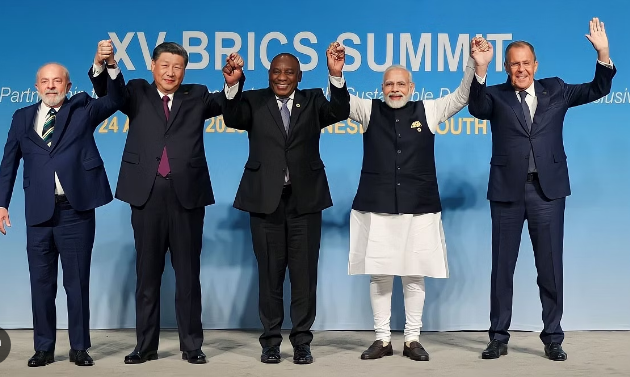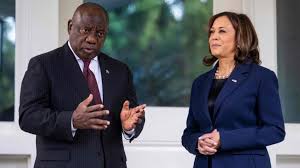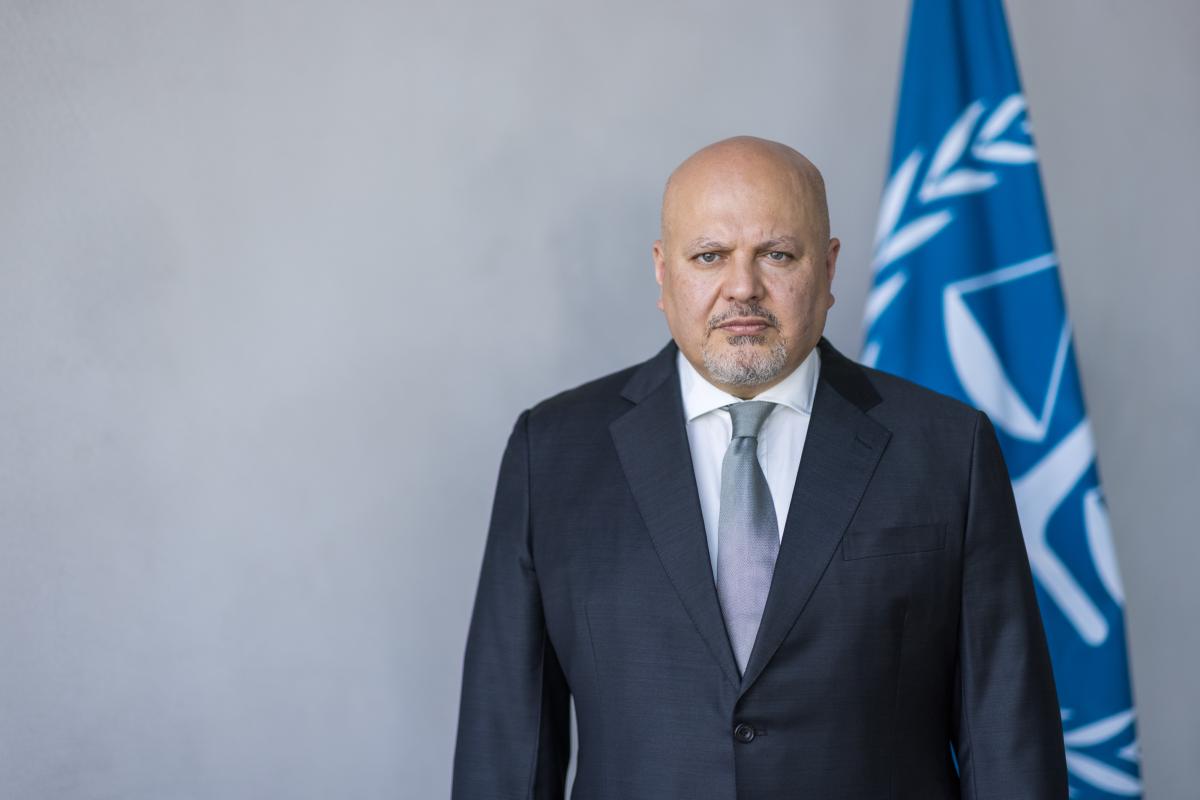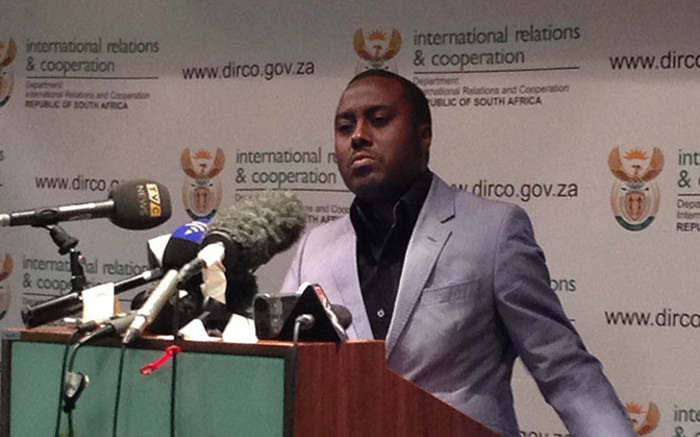
Finally we can celebrate! Lula da Silva, Xi Jinping, Cyril Ramaphosa, Narendra Modi and Russia's foreign minister Sergey Lavrov, who attended on behalf of President Vladimir Putin - seem to be saying
The Pan Afrikanist Watchman
The BRICS bloc ended its 15th summit in Johannesburg, South Africa today (Thursday) with an announcement that six more countries have been invited to join as full members beginning the 1st of January 2024.
The six are Argentine Republic, the Arab Republic of Egypt, the Federal Democratic Republic of Ethiopia, the Islamic Republic of Iran, the Kingdom of Saudi Arabia and the United Arab Emirates.

In a media statement at the end of the Summit, BRICS Chairperson, South African President Cyril Ramaphosa expressed excitement at the considerable interest shown by countries of the global South in membership of BRICS.
He reiterated the wording of the Johannesburg II Declaration that true to the BRICS Spirit and commitment to inclusive multilateralism, BRICS countries “reached consensus on the guiding principles, standards, criteria and procedures of the BRICS expansion process”.
However, neither Ramaphosa nor the other four leaders, Brazil’s Lula da Silva; Russia’s Vladimir Putin, who was participating virtually; India’s Prime Minister Narenda Modi and China’s Xi Jinping elaborated on the nature of the membership criteria or the guiding principles, standards and procedures that were adopted to guide the bloc’s expansion.
Ahead of the Summit it was reported that some 23 countries had made formal applications to become members of BRICS – an acronym for Brazil, Russia, India, China and South Africa – a bloc of emerging economies of the Global South.
President Ramaphosa would only say that they have “consensus on this first phase” of the expansion programme and that the other phases will follow.
Ramaphosa said they have also tasked their Foreign Ministers to further develop the “BRICS partner country model and a list of prospective partner countries” and report to the XVI BRICS Summit in 2024 to be held in the city of Kazan, Russia.
Experts however posit that the decision to have six new members join was largely based on political considerations than economic.
China and Russia are believed to have pushed for expansion while the other three prevaricated, with India insisting on a clear membership criterion to follow.
Other watchers were shocked that the new members are geopolitical rivals as in the case of Ethiopia and Egypt over the Grand Ethiopian Renaissance Dam (GERD); or Argentina, which is seen as an enemy of Brazil; while the same is true for Iran and Saudi Arabia.
In-fact, naysayers even doubt the extent to which the expanded BRICS will influence the global economic and political order given the raging animosity between China and India.
Some have even read intellectual dishonesty in the BRICS, saying it is a contradiction that two of its members – China and Russia – are permanent members in the United Nations’ Security Council, which they accuse at the same time of being undemocratic and in urgent need of reform, yet they have not acted on this!
But on the flipside, the six new countries include some of the world’s largest oil producers and bring immense wealth to the group and the likelihood of an injection of billions into the Dilma Rousseff-led BRICS New Development Bank (NDB).
Whilst one of BRICS’ objectives is to eventually obliterate Western hegemony – economically and politically, it’s interesting that South Africa’s biggest trading partners are Western democracies.
According to the Democratic Alliance’s shadow minister for international relations and cooperation Emma Louise Powell, the European Union (EU) accounts for 22 percent of South Africa’s exports; the world’s single biggest economy – the United States of America accounts for 9 percent of exports, mostly valued-added manufactured goods; and 7 percent of exports go to the United Kingdom.
This is in stark contrast to the 0,3 percent that accounts for South Africa’s exports to Russia and 9,4 percent to exports to China!
Meanwhile, trade data shows that 77 percent of all foreign direct investment that came into South Africa in recent years was from these three major Western nations – EU, USA and the UK.
However, for many others in the developing world, the BRICS expansion is a clear signal of the emerging new multipolar world order given its share of the global population and world GDP (grodd domestic product).
Whether the BRICS + 6 will strive for de-dollarisation in the long run as was anticipated ahead of the summit remains to be seen, but in the immediate term, the BRICS members have insisted on denominating their trade transactions in their local currencies.
Obviously, this is a step in the right direction towards the creation of a new global financial architecture, an alternative to the Bretton Woods Institutions of the World Bank and the International Monetary Fund (IM), which are collectively responsible for the poverty, misery and debt burden that haunts the economies of the global south, more particularly those of Africa!
© TPA








